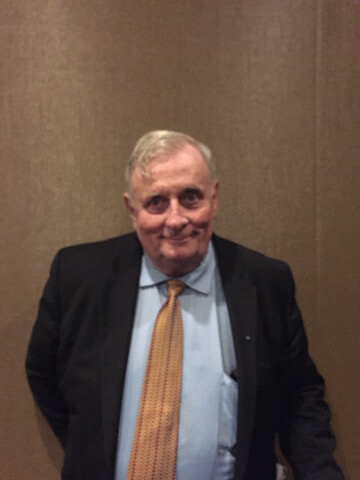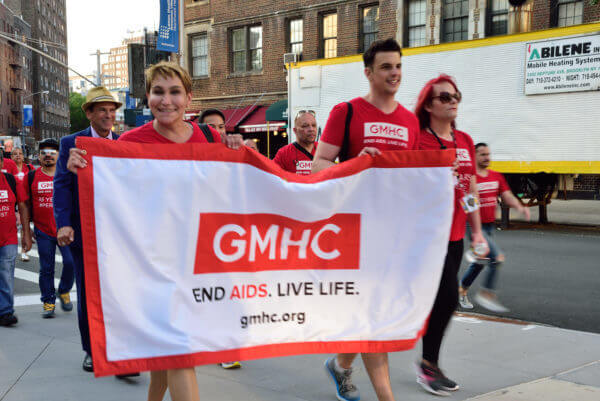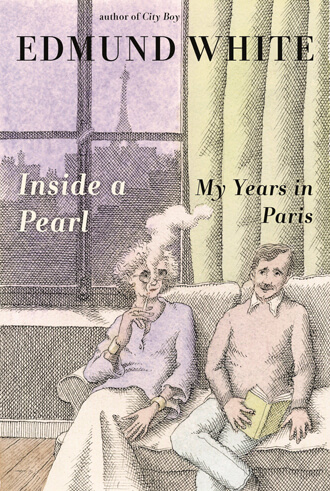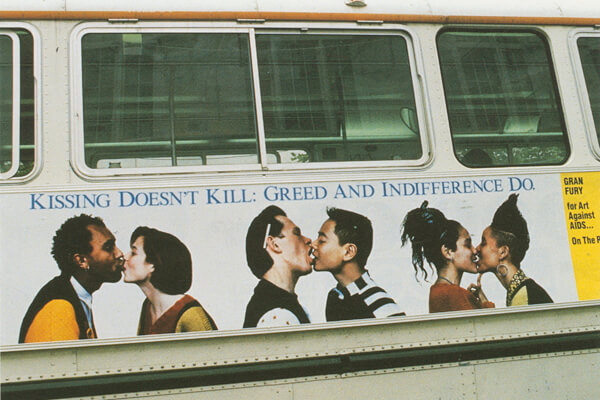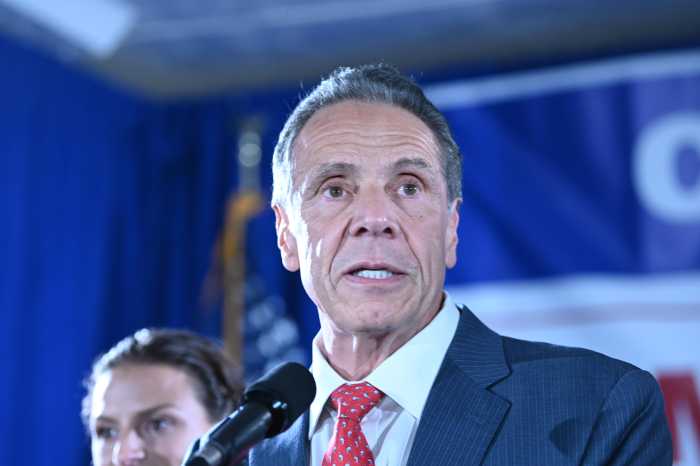Editor Dean Van Motter and publisher Lisa Davis with award winner Bernardine Evaristo. | MICHAEL LUONGO
It was a mix of old and new at the 27th annual Publishing Triangle Awards, an event that honors the best in LGBT publishing. Many stalwarts and icons of the gay literary community were in attendance and celebrated during the course of the evening, but the April 23 event at the New School also offered a warm embrace to a more diverse array of writers than was once the case. In fact, some who won awards were brand new to the gay publishing scene — straight allies entirely surprised to be honored.
“I’m not actually gay, and I’m a woman,” said Bernardine Evaristo, the winner of the Ferro-Grumley Award for lesbian and gay fiction for “Mr. Loverman” (Akashic Books) — a novel of a Caribbean-born man in London first contemplating coming out at 74. The UK-based writer used the British expression “dead chuffed” — really pleased — to describe her feelings on receiving the award.
“It’s so unexpected to win an LGBT award for this novel in America,” Evaristo said. “It’s a completely random thing that’s happening to me,”
Pioneering gay and lesbian writers joined by new LGBT, allied voices
She was able to accept the award in person because she is currently on fellowship at Dartmouth College.
Other award-winners were unable to attend the ceremony — among them Robert Beachy, author of “Gay Berlin: Birthplace of a Modern Identity” (Alfred A. Knopf), who won the Randy Shilts Award for Gay Nonfiction; Kim Fu, recipient of the Edmund White Award for the book “For Today I Am a Boy” (Houghton Mifflin Harcourt), a novel about a young Chinese-Canadian boy struggling with the knowledge that he is in fact a girl; and Jericho Brown, who won the Thom Gunn Award for Gay Poetry for “The New Testament” (Copper Canyon Press).
Edmund White and Rigoberto González. | MICHAEL LUONGO
“We were very pleased at the diverse character of our award winners this year,” said Trent Duffy, the treasurer and awards chair of the Publishing Triangle, which describes itself as “the association of lesbians and gay men in publishing.” “We honored Rigoberto González, Bernardine Evaristo, and the legendary activist Barbara Smith, and Jericho Brown,” among other award recipients. “It shows that the LGBT community is truly coming to support the work of people of color,” Duffy added.
The event drew a crowd of roughly 125, he said.
Alethia Jones was part of the diversity Duffy mentioned. She, along with her co-editor Virginia Eubanks and Barbara Smith, received the Judy Grahn Award for Lesbian Nonfiction for “Ain’t Gonna Let Nobody Turn Me Around: 40 Years of Movement Building with Barbara Smith” (SUNY Press).
“The award is a key way the community is saying thank you for all you’ve done,” Jones said of Smith, adding, “She is so deeply thankful to those who understand her work. At heart, Barbara is a poet,” as well as an activist.
Rigoberto González, a poet, novelist, memoirist, and critic, described his Bill Whitehead Award for Lifetime Achievement as “an incredible honor. So many of the previous recipients have nurtured and helped me, with my identity as a gay man and as a writer, so joining their company is an absolute honor.” The California-born writer, who was raised in Mexico, added, “And I am flattered, as I am only 44.”
Among those at the ceremony who have nurtured young writers over the decades was Edmund White, for whom the Debut Fiction Award is named. Looking back from today through his years of pioneering writing, White told Gay City News, “I’ve always been open about being gay in my writing, even in the beginning when it was much more different from today and was called a career breaker.”
Novelists Sarah Van Arsdale and Christopher Bram with publishing industry marketing professional Michele Karlsberg. | MICHAEL LUONGO
He recalled editors who dealt with him contemptuously early in his career, especially after the 1977 “Joy of Gay Sex” (Simon & Schuster), which he co-wrote with Dr. Charles Silverstein. Widely known and celebrated among LGBT audiences, White said he feels that within the larger US reading world his work, heavily oriented toward gay themes, is still largely unknown. As Americans, he said, “first of all, we don’t know writers and we don’t know ghetto-ized writers.” Well-read Brits, he said, know his work, regardless of their sexual orientation. White lamented that many LGBT writers have still not been able to cross over into mainstream popularity, contrasting that with African-American writers like Toni Morrison, whose work is considered universally American now.
“Gay publishers thought we would cross over in the same way,” he said, adding, “Black characters can still appeal to white heterosexuals, because they can identify with them.”
Scanning the many young writers and readers around him at the award ceremony reception, White joked, “Maybe that’s finally changing though, now that we are normal and assimilated. We can have babies and get divorced now, too.”
Indeed, the world of today’s LGBT writers honored at the 27th Publishing Triangle Awards has changed vastly over the nearly four decades since “The Joy of Gay Sex” first appeared — something abundantly clear from the list of winners and finalists, and their subject matter, at the group’s website, publishingtriangle.org.
The Publishing Triangle event was part of the spring season of LGBT book events that includes the Rainbow Book Fair, held April 18, and the Lambda Literary Awards, scheduled for June 1 at the Great Hall at Cooper Union.




